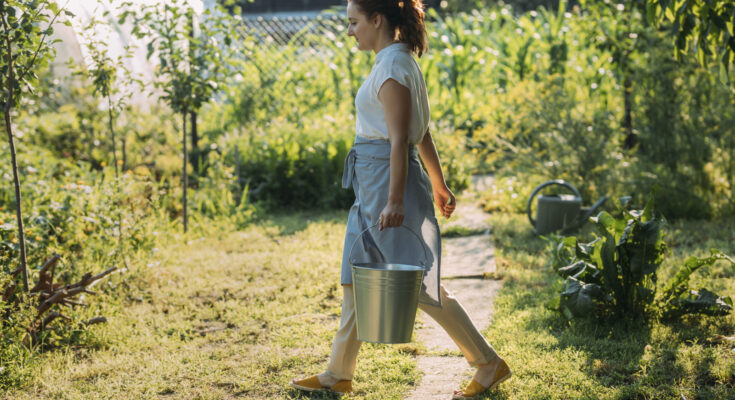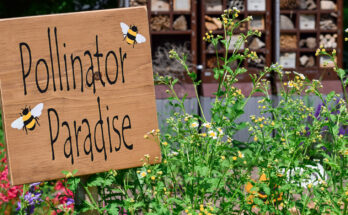Budget-Friendly DIY Lawn Fertilizer You Can Make In A Bucket
If you want a lush lawn or a successful garden, fertilizers and plant food are absolute necessities. However, the cost of keeping everything green can definitely take a toll on your wallet. You can make your own DIY compost and it works for many households. But not everyone has the space or the ingredients for a full-scale composting system or even apartment-friendly compost bins. Compost tea (also called swamp water) is a worthy compromise, providing the benefits of home composting with minimal cost, and customizable to your space and needs.
Improving soil quality is a constant battle for gardeners and home landscapers each year, but compost tea might just be the secret to a lush garden. Homemade compost tea made by soaking kitchen scraps, lawn clippings, and even old, raked leaves in water can deliver essential nutrients and microorganisms that your plants and lawn will love. All you need to is dilute the tea with fresh water, and use it as a watering agent at the base of your bushes or garden vegetables, or spray it across the lawn and you’ll see the positive results in no time.
How do you make compost tea?
You can make DIY compost tea in many ways to nourish your garden: From adding eggshells and salad scraps to a Mason jar to filling a 5-gallon bucket or 55-gallon drum with garden and grass clippings. Most of the ingredients for a successful compost tea are likely already in your yard or kitchen. So, how do you make this efficient fertilizer?
The premise is simple. For a medium-sized garden, fill a five-gallon bucket with the aforementioned food scraps, leaves, and grass clippings. Then pour water over it, cover the bucket, and let it ferment for a few days or weeks. Once it has steeped, strain out the solids and pour or spray the “tea” on your vegetables or lawn (it may need diluting). If you want bonus nutrients to supercharge your tea, add a few scoops of traditional manure fertilizer. Keep in mind that the larger the bucket, the more difficult it will be to strain the liquid. You can use a ladle or dip a watering can into the bucket, then mix the compost tea concentrate with water before applying it.
Is compost tea better than traditional compost?
There are benefits to traditional compost that compost tea can’t provide. For example, finished traditional compost can help retain water, sequester carbon in the soil, and, most obviously, add organic matter to your garden, which can reduce soil erosion and act as a slow-release fertilizer.
But if you have a big job to do or want a super-simple organic DIY fertilization method to help your lawn stay green throughout the season, compost tea can do the trick. There are some things you need to know about using compost on a lawn, including volume. A bucket of compost tea can be watered down to spray over a decent-sized lawn, whereas you might need a whole bag of traditional compost for that same space. In the case of a garden, compost tea allows you to add the pick-me-up of beneficial microbes with less work involved than traditional compost, and at almost no cost compared with store-bought fertilizers. One thing to keep in mind is that a bucket of water filled with rotting plant matter can be both extremely smelly and a friendly habitat for mosquitoes — two things few people want in their garden.



